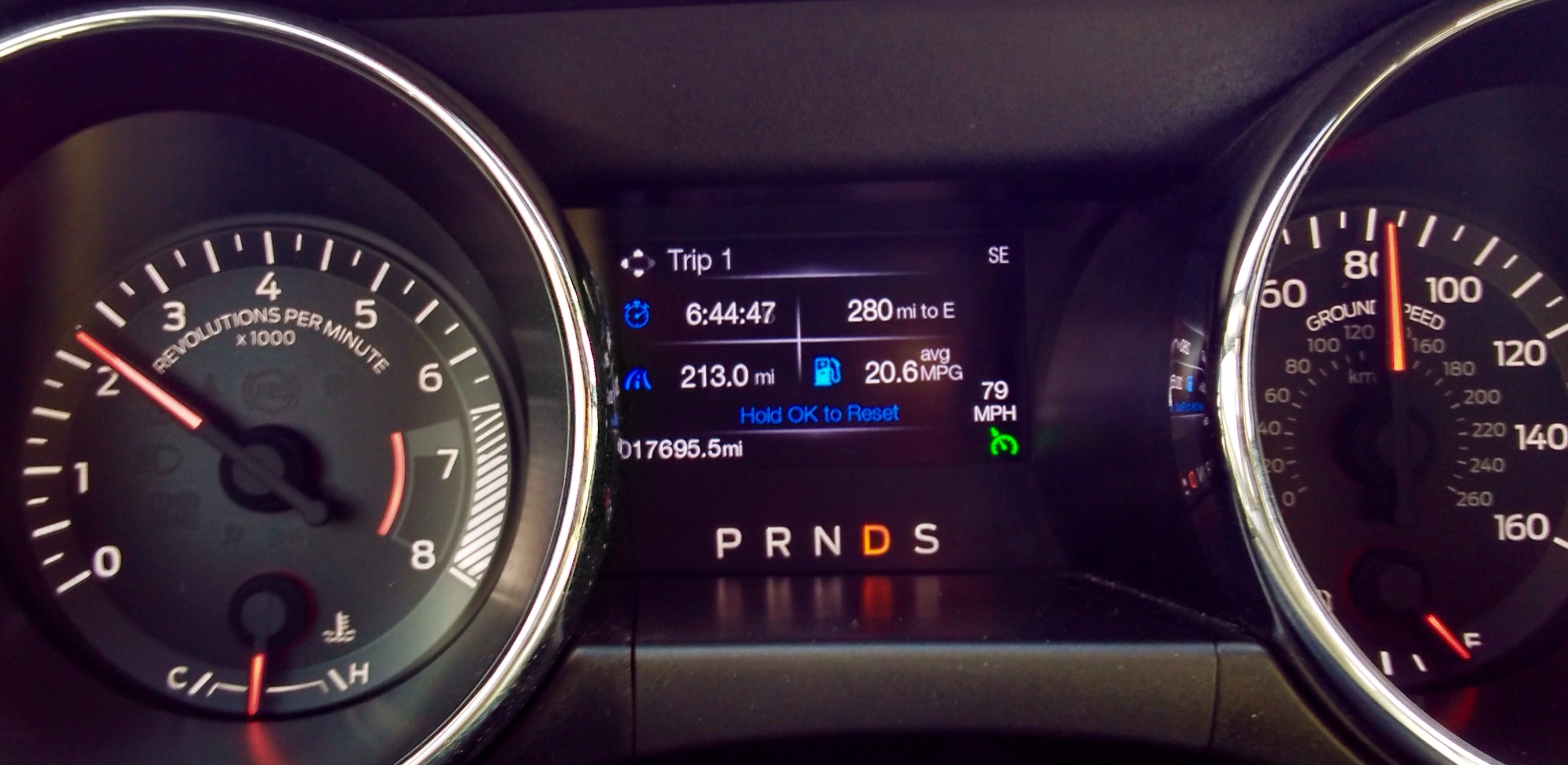The Fallacy Of Metrics

What gets measured, improves
It’s the mantra of every Six Sigma acolyte. Every PMP project manager. Everyone who’s ever read a performance improvement book of any kind. If you want to get better numbers, measure it. And it’s true. Of course, it’s true. (I have a PMP certification, after all.) But, it’s not always true.
I drove to Louisville, Kentucky to London, Kentucky on Sunday. It was a wonderful day. The drive was pleasant. I was driving a beautiful 2018 Ford Mustang. The weather was too cool to put the top down, but that didn’t change the enjoyment of driving through the Kentucky countryside.
The 2018 Mustang has lots of bells and whistles. It has some pretty sophisticated tools for calculating miles per gallon. It also has some settings that let you pretty much trade gas for thrills. The more you use those settings the worse the gas milage gets. On the trip from the airport to the hotel, I was averaging about 24 MPG. Not bad for a big V8 muscle car. I have to admit that over the ensuing week, I used the throttle more than the brake. My gas milage dropped to 14 MPG.
It was fun.
As I started on the 2 hour drive to London, I decided to switch gears. . .literally. I opted for gas milage over speed. I drove conservatively, and the onboard computer calculating the miles per gallon rewarded me with ever increasing milage numbers. The longer I drove the higher the numbers climbed.
It was a game to help pass the miles. Eighteen, nineteen, twenty. The miles stretched away. The time between each increase gradulally became longer and longer. The nature of averages means that I would never get it back to that mythical 24 MPG. And all of that recklessness meant ever more miles to even get to 20 MPG.
I thought about numbers. They are funny things, numbers. My company bases a lot of its compensation on numbers. Suppose that I decided to measure MPG as a metric for how well I was driving. After all, the better you drive, the higher the MPG, right? So, if it was a contest and the winner is whoever has the best MPG rating, what kind of behavior would that reinforce? You might think I’d be tempted to drive like an old woman on her way back and forth to church. Gradual acceleration. Gradual stops.
But, I’m in a car that screams to be let loose. So, I drove it like I stole it for four days and now I have to start worrying about the miles per gallon. What do I do? As the day of reckoning gets closer, I decide that I’m ready to start working on my MPG rating. How do I get the number higher? I drive more.
And that’s the crazy part. MPG measures how conservatively you drive. Higher gas milage means saving money on fuel. And the way to boost that the rating that measures fuel economy is to use more fuel. If I simply measured one metric, I’m going to encourage the very behavior I’m trying to avoid. Namely using more fuel.
Sometimes trying too hard to force a particular behavior can fail if you measure the wrong thing.
Rodney M Bliss is an author, columnist and IT Consultant. His blog updates every weekday. He lives in Pleasant Grove, UT with his lovely wife, thirteen children and grandchildren.
Follow him on
Twitter (@rodneymbliss)
Facebook (www.facebook.com/rbliss)
LinkedIn (www.LinkedIn.com/in/rbliss)
or email him at rbliss at msn dot com(c) 2017 Rodney M Bliss, all rights reserved
